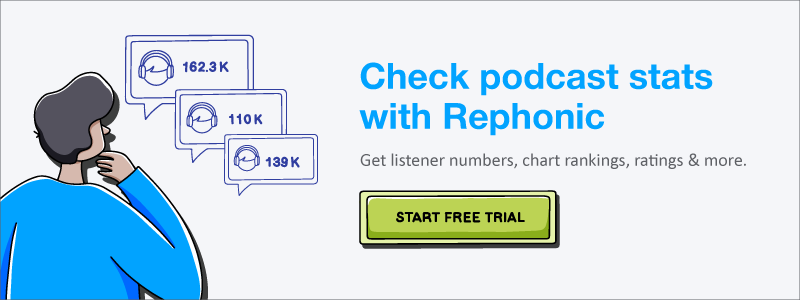If you dream of making your podcast go viral and have everyone talking about it, you've landed in the right place.
James Cridland — podcaster, radio futurologist, and creator of the daily newsletter Podnews — shared a treasure trove of information on how to make a podcast a global hit at the Asia Podcast Festival.
What magic do you need to make your podcast go viral? How do you get your podcast noticed enough to make it a global hit? Today, we're digging into all the nuggets that make his presentation pure gold for podcasters.
Table of Contents
What makes a good podcast?
The first rule of podcasting is to make quality content. But when you're aiming for a global hit rather than being a micro-influencer in your niche, that's easier said than done.
Small is terrific if that's what you're aiming for. But if you want millions of downloads worldwide, your content must be relevant, entertaining, and well-produced. Naturally, you need excellent audio quality. That means using good microphones, recording in a studio, and an editor who knows what they're doing.
But apart from the obvious, what are the most effective ways that James sees for hosts contemplating how to make a podcast go viral?
Let's look at his podcasting tips in three buckets: Consumption, Promotion, and Content.
Consumption

Most podcasters tend to think about their own country and language first, and their assumptions are often confirmed by the stats that they see.
Edison Research puts out a ton of stats on the state of US podcasting and other media in their Infinite Dial and Share of Ear Reports. But these reports have relatively little data on the rest of the world. US podcasters could be forgiven for thinking that podcasting is growing in the US but isn't making much of a splash elsewhere. But that assumption couldn't be further from the truth.
James points out that in 2021 there were a billion podcast listeners across the world, and the global advertising market is worth USD$1.93 billion. Here are his recommendations if you want your podcast to go viral.
Think big
Many loyal listeners don't care where their favorite podcast is made. Instead, they might base their listening choices on questions like:
- Do I like the host? Are they personable, witty, acerbic, thoughtful, out-there? In other words, do I resonate with this person's vibe?
- Is the content relevant to me? Is it interesting, helpful, informative, funny, or timely? Does it have noteworthy guests and fresh content? Do I get enough out of each new episode to make it worth pushing subscribe?
- Is it easy? How much effort do I have to put into finding the podcast? Is it easy to listen to?
Record for a global audience
So if your show has great content, is entertaining and can answer questions for listeners, you already have the main ingredients for making a popular podcast.
However, if you want millions of downloads, you'll probably need to drive traffic from countries other than yours. That means podcasters must be considering more than their local audience if they want to hit those big targets.
So to get global traffic to your podcast, always record your episodes with the understanding that people from diverse cultures may tune in.
Record your podcast in a high-growth language
English is the predominant language online, but James says podcasts are leaping ahead in other languages.
The number of new podcasts in Hindi, for example, grew by 1400% in 2020 and in Indonesian by 720%. English language podcasts doubled in growth, which is still a fantastic result. But if you speak Spanish, German, Hindi, or Mandarin, you could well consider recording your podcast in that language and see listeners flocking in.
Get on the right podcast directories
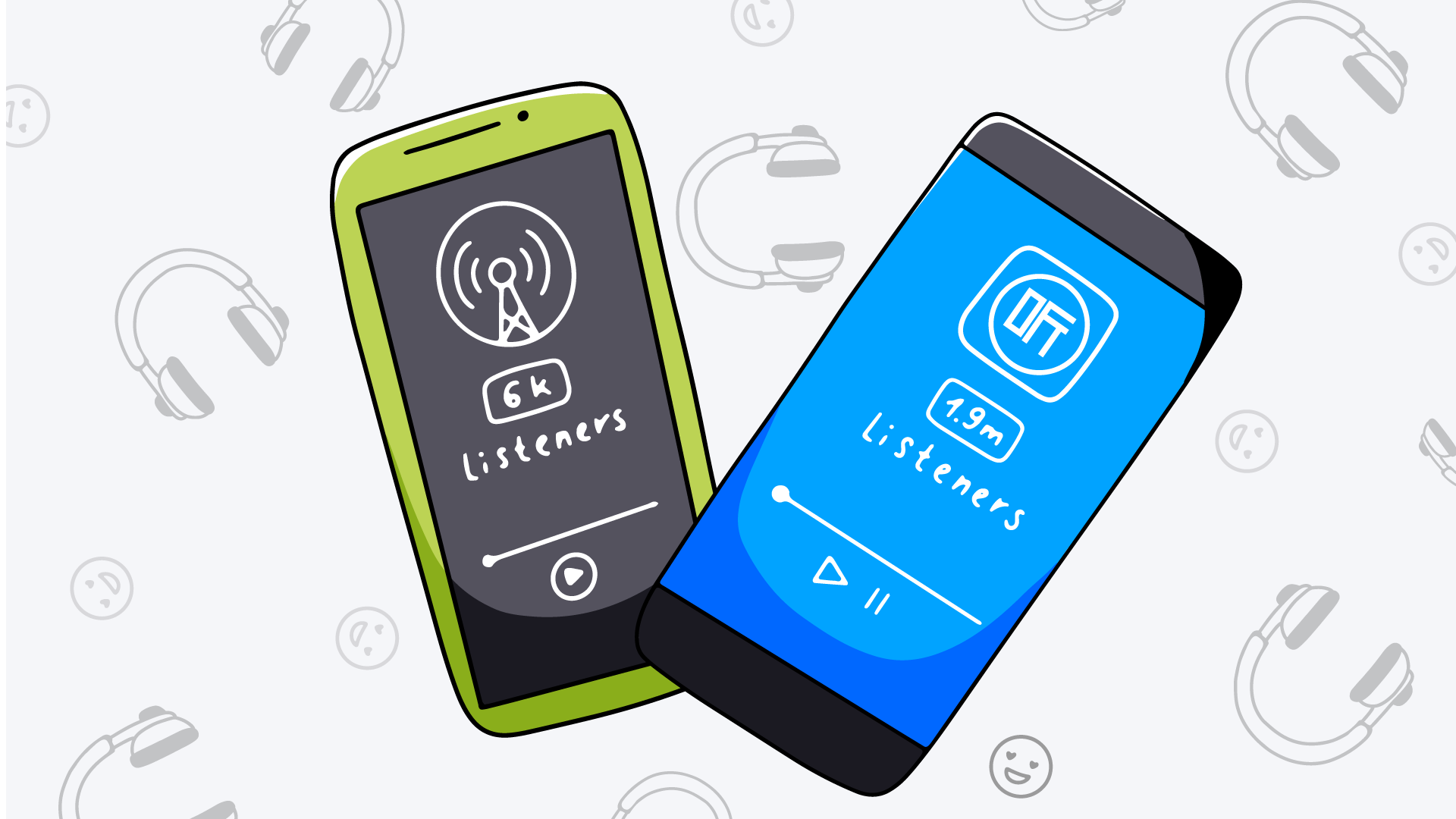
When you want to watch videos, you'll probably head to YouTube. When you want to read a blog post, you're likely using Google Chrome or Safari.
But when you want to listen to podcast episodes, you're spoilt for choice because there are so many podcast directories around.
If you're truly aiming to go viral, you need to get your podcast on most, if not all, of the popular directories. If you live somewhere like the US or Australia, those popular directories are not always the ones you might expect. In fact, you may never have heard of some of them.
Apple Podcasts is often the go-to app in the United States, Australia, the UK, and much of Europe. That's possibly because so many people in those countries have iPhones. Spotify is the other big directory in these areas, and then the smaller apps like Castbox, Podcast Addict and iHeart make up the rest.
For that reason, podcasters from these countries concentrate on these directories, with most of their attention focused firmly on Apple Podcasts and Spotify.
However, James points out that it's a very different story when you move your attention to Asia, Africa and South America, where Android handsets dominate.
For example:
- Spotify likely has more users worldwide than any other app, including Apple Podcasts.
- Many people in developing countries have phones that run on the KaiOS operating system, which doesn't accept Android or iOS apps. Instead, they might use the PodLP app to play their podcasts.
- Other podcast apps you might not know include iVOOX (Spanish), AAWAZ, Jio Saavn and Gaana (India) and Anghami.
- Chinese apps like Ximalaya, Lizhi, Qingting FM and Xiaoyuzhou FM
The point is that there are many, many podcast directories other than the ones you're probably used to. If you want to go global, you should be on most of these apps because every country has a favorite. You'll reach many, many more people worldwide if you're on the apps they use.
Promotion
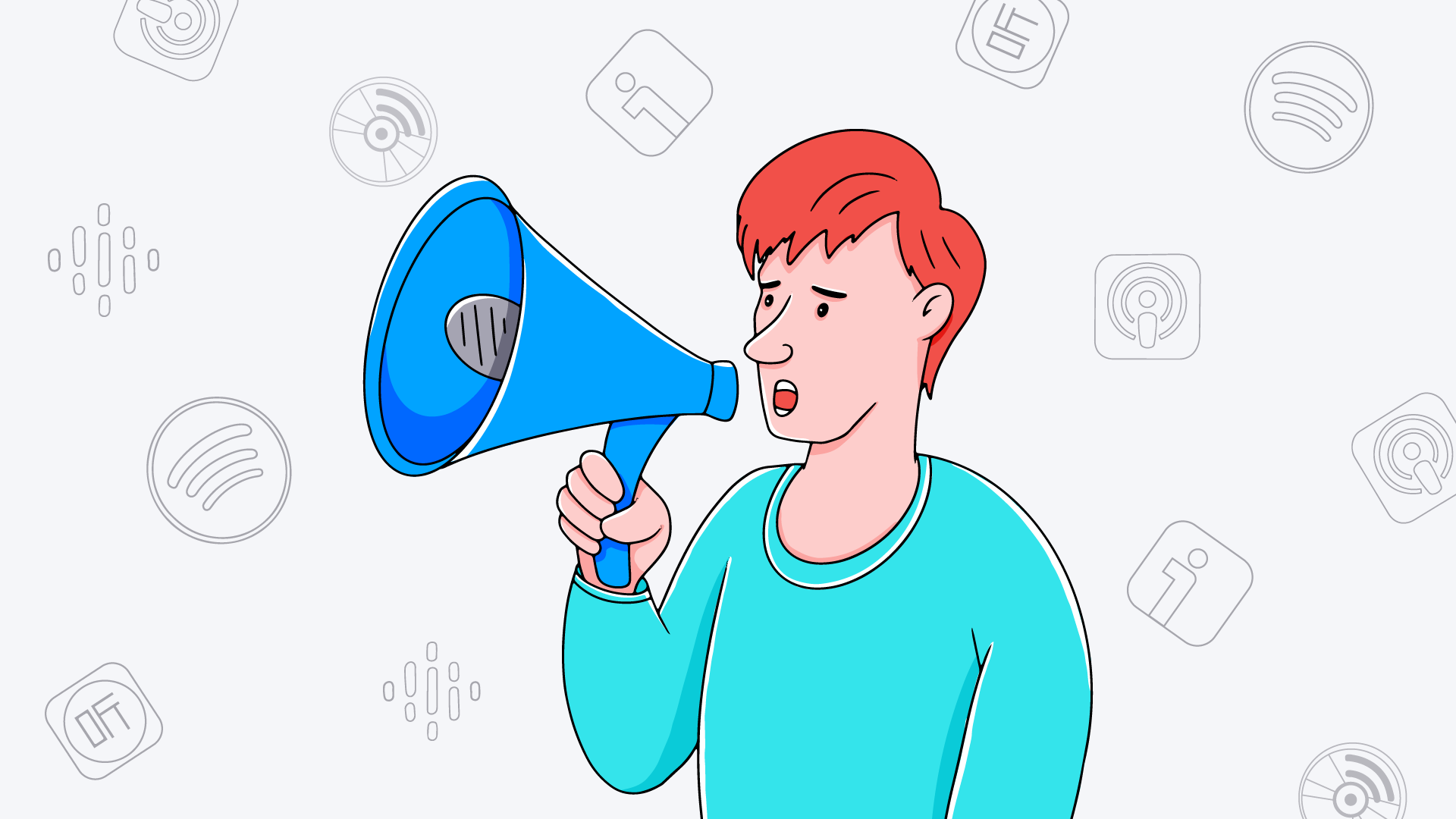
Your first action after making a podcast episode is to start promoting it. Telling people about your podcast is vital if you want to stand out.
However, several other equally essential actions you can take also make it much easier for potential listeners to find you.
Choose a good podcast name
James has some excellent dos and don'ts on what makes a good podcast name.
Your podcast's name should:
- Communicate exactly what your podcast is about. Don't fall into the trap of being so witty that the name leaves people wondering.
- Be as individual as possible. There are 1719 podcasts called Real Talk, according to Cridland's research. How can you tell from the name which podcast you want? And what exactly are you 'real talking' about?
- Use words in the dictionary so that your podcast is voice searchable. Don't be tempted to mash words together and create a new word for your podcast name, such as 'Podutainment.' Others are lured by puns like 'Fission Chips' - a clever name for a science podcast, to be sure. But problems arise when people try to find your podcast episodes using a voice search like Siri or Alexa. Can you guess what a voice assistant will bring up when you ask it for Fission Chips? (Hint: it's unlikely to be a podcast.)
- Keep away from the word podcast. Apart from the fact that over 700,000 other podcasters use the word "podcast" as part of their name (making it one of the least unique names), search engines tend to get confused when they see the word podcast, particularly Spotify's search engine. You'll be competing against everything else with podcast in it, regardless of the other words in your show's name.
Make your show easily discoverable
Prime your podcast to be searchable by the different podcast apps. That means paying particular attention to your episode titles and your unique podcast name.
Make them unambiguous and informative, and include relevant search terms right in the title. Sure, you can number your podcast episodes, but never, never make the number the full episode title. Instead, use the guest's name in the title and include the episode topic so that the search engines have the best possible information to put you right at the top of people's search results.
You can also use search terms, guest names etc., in your episode descriptions. Castbox, Google Podcasts, Spotify, Stitcher and Podcast Addict all add your podcast description to their indexes so that description information will surface in a search.
Crucially, however, Apple Podcasts, Amazon Music and Pocket Casts do not.
They only index podcast names and episode titles, so it's vital to include all the detail within your episode titles and podcast name.
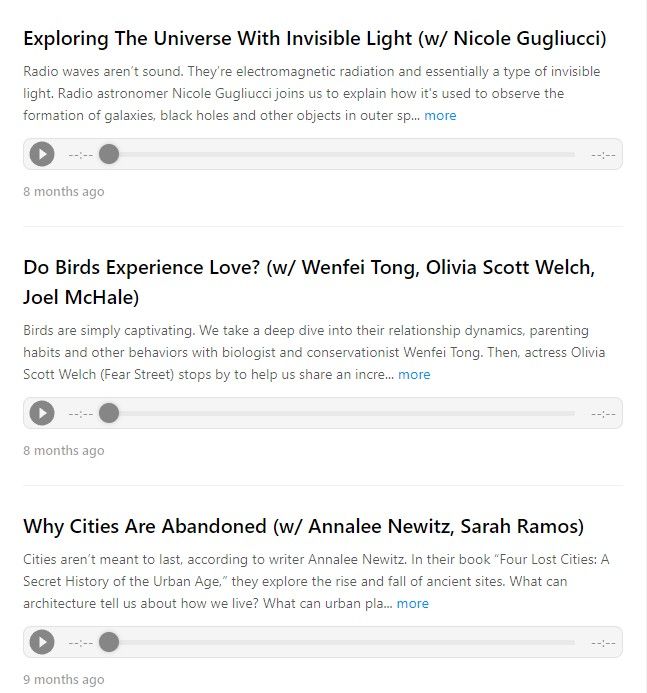
Make your podcast easily recognizable
Use clear artwork
Create distinctive artwork for your podcast and use it everywhere. Be consistent so that people can spot your podcast by the logo as easily as they read the name. Make it stand out, but don't go too over the top. Make it legible and give clues as to what your podcast's about.
Podcast artwork examples:

Hidden Brain's artwork is simple but effective with the stark white letters standing out against the dark blue background. This logo uses the podcast's name with the twist of the hidden E and A cleverly tying into the name and theme of the overall audio content.

People resonate with human faces, so many podcasts use a photo of the host. The SPI artwork communicates the show's theme in its name, the Pat Flynn's smiling face and the company motto (Serve First).

Finally, Crypto Business with Michael Stelzner has cool podcast artwork suggesting a pathway into the future. It also mentions his main brand, Social Media Examiner.
Make your description easy to read
Don't leave potential listeners wondering what they'll hear if they download one of your episodes. Ensure that your description is straightforward and can be summed up in 10 words or less.
Get the word out
Once you've pressed publish on your new episode, don't be shy about trumpeting the news to the sky. Or, more usefully, let people know through social media platforms. Then, send a press release to your local newspaper or radio station and to newsletters like Podnews.
However, James does have a word of caution when it comes to press releases - ensure that your news is worth publicizing if you don't want your releases to end up in the trash. Simply sending out an email to journalists about your latest new episodes won't work.
Telling people why it's newsworthy is a good start because journalists are very busy people, and they like being able to understand easily. Include a simple PDF with your message, and many journalists will simply copy and paste your words directly into their story. It's easy for them and perfect for getting your message out precisely as you want it.
Add an image in your copy too. The Web is full of photos, so make it easy for the journalist and give them a picture they can use too.
Lastly, add a link to the podcast episode in your press release, and make sure it goes to your podcast website, not an app. You want to send traffic to your turf, not someone else's property, especially if you plan to make a living out of your podcast.
Content
Be relevant and real
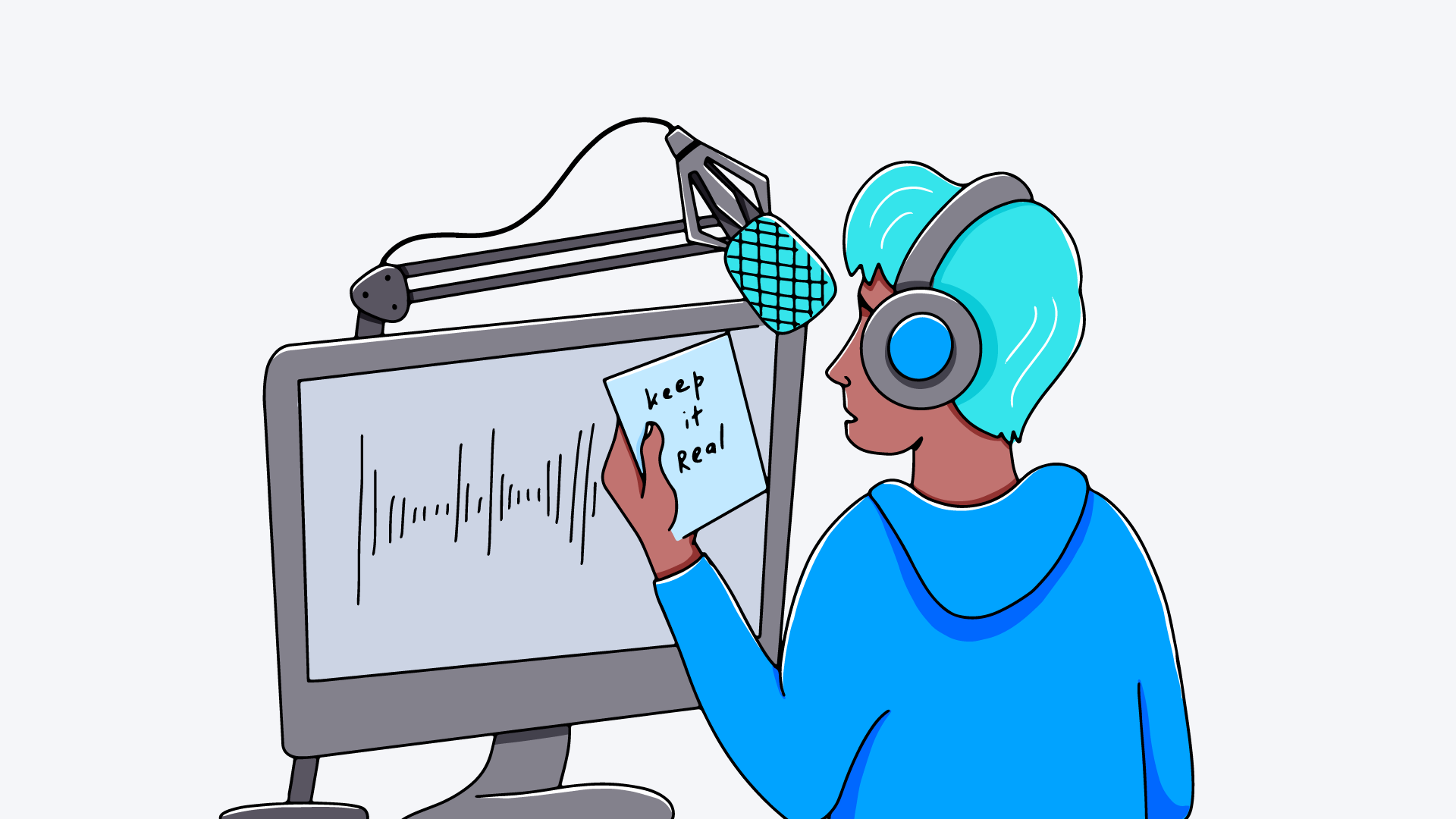
Ensure that most English speakers will understand your English content.
Remember that people in countries as diverse as India, Nigeria, New Zealand, Sweden, Singapore and many more speak English and will understand what you and your guests are saying if you speak standard English.
James warns against making your script too colloquial, using local slang that people in other countries may not understand.
Alternatively, include a quick explanation to put things into context so that everyone understands that when you mention 'hoovering' in your minimalist podcast episode, you mean that you're using a vacuum cleaner. Or, if you're an Australian and say a 'Foxtel box' in your Sports Round-Up, explain to overseas listeners that it's a TV box, like Sky in the UK or Astro in Malaysia.
Produce local versions
Another thing you could consider is producing local versions of your podcast. Wondery did that when they recreated their successful Business Wars podcast with Nippon Broadcasting in Japan, focusing on Japanese business. And they repeated the formula by partnering with Al Jazeera and producing a Business Wars podcast for the Arab world.
Other podcasters have recorded in one language and had their podcast episodes translated into other languages, ensuring that they're culturally relevant at the same time.
Many podcasters have a YouTube channel for their podcast, and a few even create different language versions on that, too.
Conclusion
There's no doubt that competition is fierce in the podcasting world now that audio content is firmly mainstream. However the steps we've outlined today represent your best chance to make your podcast go viral.
Thanks so much to James Cridland for his many words of wisdom.


